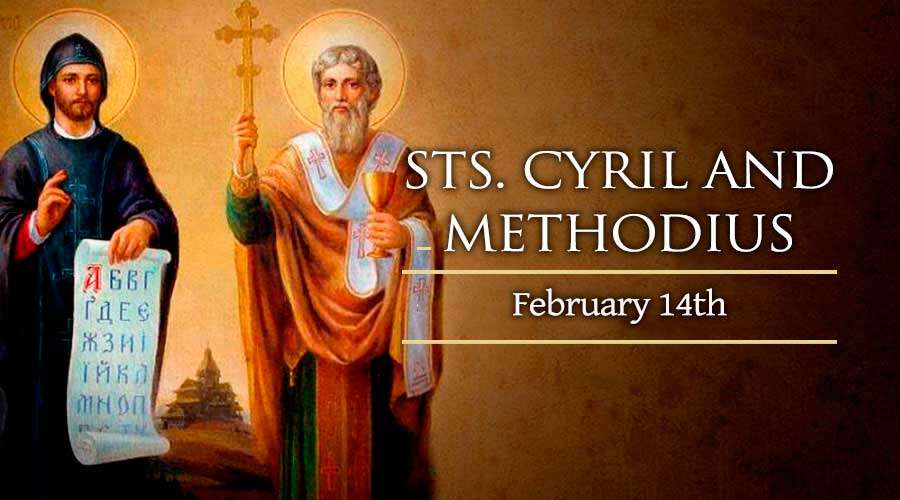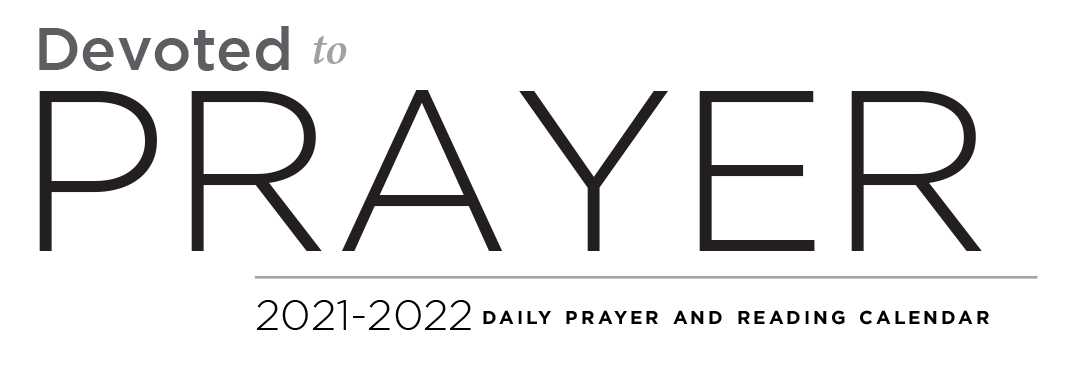
Daniel 7:9–10 (Listen)
The Ancient of Days Reigns
9 “As I looked,
thrones were placed,
and the Ancient of Days took his seat;
his clothing was white as snow,
and the hair of his head like pure wool;
his throne was fiery flames;
its wheels were burning fire.
10 A stream of fire issued
and came out from before him;
a thousand thousands served him,
and ten thousand times ten thousand stood before him;
the court sat in judgment,
and the books were opened.
Daniel 7:13–14 (Listen)
The Son of Man Is Given Dominion
13 “I saw in the night visions,
and behold, with the clouds of heaven
there came one like a son of man,
and he came to the Ancient of Days
and was presented before him.
14 And to him was given dominion
and glory and a kingdom,
that all peoples, nations, and languages
should serve him;
his dominion is an everlasting dominion,
which shall not pass away,
and his kingdom one
that shall not be destroyed.
2 Corinthians 3:1–9 (Listen)
Ministers of the New Covenant
3:1 Are we beginning to commend ourselves again? Or do we need, as some do, letters of recommendation to you, or from you? 2 You yourselves are our letter of recommendation, written on our hearts, to be known and read by all. 3 And you show that you are a letter from Christ delivered by us, written not with ink but with the Spirit of the living God, not on tablets of stone but on tablets of human hearts.
4 Such is the confidence that we have through Christ toward God. 5 Not that we are sufficient in ourselves to claim anything as coming from us, but our sufficiency is from God, 6 who has made us sufficient to be ministers of a new covenant, not of the letter but of the Spirit. For the letter kills, but the Spirit gives life.
7 Now if the ministry of death, carved in letters on stone, came with such glory that the Israelites could not gaze at Moses’ face because of its glory, which was being brought to an end, 8 will not the ministry of the Spirit have even more glory? 9 For if there was glory in the ministry of condemnation, the ministry of righteousness must far exceed it in glory.
John 12:27–36 (Listen)
The Son of Man Must Be Lifted Up
27 “Now is my soul troubled. And what shall I say? ‘Father, save me from this hour’? But for this purpose I have come to this hour. 28 Father, glorify your name.” Then a voice came from heaven: “I have glorified it, and I will glorify it again.” 29 The crowd that stood there and heard it said that it had thundered. Others said, “An angel has spoken to him.” 30 Jesus answered, “This voice has come for your sake, not mine. 31 Now is the judgment of this world; now will the ruler of this world be cast out. 32 And I, when I am lifted up from the earth, will draw all people to myself.” 33 He said this to show by what kind of death he was going to die. 34 So the crowd answered him, “We have heard from the Law that the Christ remains forever. How can you say that the Son of Man must be lifted up? Who is this Son of Man?” 35 So Jesus said to them, “The light is among you for a little while longer. Walk while you have the light, lest darkness overtake you. The one who walks in the darkness does not know where he is going. 36 While you have the light, believe in the light, that you may become sons of light.”
The Unbelief of the People
When Jesus had said these things, he departed and hid himself from them.
Morning Psalms
Psalm 67 (Listen)
Make Your Face Shine upon Us
To the choirmaster: with stringed instruments. A Psalm. A Song.
67:1 May God be gracious to us and bless us
and make his face to shine upon us, Selah
2 that your way may be known on earth,
your saving power among all nations.
3 Let the peoples praise you, O God;
let all the peoples praise you!
4 Let the nations be glad and sing for joy,
for you judge the peoples with equity
and guide the nations upon earth. Selah
5 Let the peoples praise you, O God;
let all the peoples praise you!
6 The earth has yielded its increase;
God, our God, shall bless us.
7 God shall bless us;
let all the ends of the earth fear him!
Psalm 150 (Listen)
Let Everything Praise the Lord
150:1 Praise the LORD!
Praise God in his sanctuary;
praise him in his mighty heavens!
2 Praise him for his mighty deeds;
praise him according to his excellent greatness!
3 Praise him with trumpet sound;
praise him with lute and harp!
4 Praise him with tambourine and dance;
praise him with strings and pipe!
5 Praise him with sounding cymbals;
praise him with loud clashing cymbals!
6 Let everything that has breath praise the LORD!
Praise the LORD!
Evening Psalms
Psalm 46 (Listen)
God Is Our Fortress
To the choirmaster. Of the Sons of Korah. According to Alamoth. A Song.
46:1 God is our refuge and strength,
a very present help in trouble.
2 Therefore we will not fear though the earth gives way,
though the mountains be moved into the heart of the sea,
3 though its waters roar and foam,
though the mountains tremble at its swelling. Selah
4 There is a river whose streams make glad the city of God,
the holy habitation of the Most High.
5 God is in the midst of her; she shall not be moved;
God will help her when morning dawns.
6 The nations rage, the kingdoms totter;
he utters his voice, the earth melts.
7 The LORD of hosts is with us;
the God of Jacob is our fortress. Selah
8 Come, behold the works of the LORD,
how he has brought desolations on the earth.
9 He makes wars cease to the end of the earth;
he breaks the bow and shatters the spear;
he burns the chariots with fire.
10 “Be still, and know that I am God.
I will be exalted among the nations,
I will be exalted in the earth!”
11 The LORD of hosts is with us;
the God of Jacob is our fortress. Selah
Psalm 93 (Listen)
The Lord Reigns
93:1 The LORD reigns; he is robed in majesty;
the LORD is robed; he has put on strength as his belt.
Yes, the world is established; it shall never be moved.
2 Your throne is established from of old;
you are from everlasting.
3 The floods have lifted up, O LORD,
the floods have lifted up their voice;
the floods lift up their roaring.
4 Mightier than the thunders of many waters,
mightier than the waves of the sea,
the LORD on high is mighty!
5 Your decrees are very trustworthy;
holiness befits your house,
O LORD, forevermore.
Cyril, Monk, 865; Methodius, Bishop, 885; Missionaries to the Slavs (February 14)

About the Commemoration
These brothers, known as “the apostles to the Slavs,” were two of seven children of a wealthy and scrupulously orthodox family in Thessalonika, Greece.
Methodius, the older of the two, was born about 825 and attained high rank in his province of Macedonia before he withdrew to a monastic life. Cyril, as he is known, was born in 827 and was given the name Constantine. He was educated at Constantinople and became a noted professor of philosophy there about 850. After a time, he withdrew to the monastic life in Bithynia, not far from Methodius. In 862 the king of Moravia, to counteract the expanding power in his lands of the German bishops, asked for missionaries who would teach the people in their native language, Slavonic. The Patriarch of Constantinople chose the two brothers to lead the mission.
In Moravia Cyril took an interest in the vernacular language and invented an alphabet, Glagolitic, in order to translate the Gospels and the liturgy into Slavonic. The Cyrillic alphabet (modern Russian), from Greek capital letters, is based on this work. His interest in the vernacular was opposed by the Western clergy in Moravia who recognized only the three languages of Pilate’s sign above the cross of Jesus: Hebrew, Latin, and Greek. Cyril journeyed to Rome and was there received by Pope Hadrian II in 887, and the pope confirmed Cyril’s Slavonic translations. Cyril had been in poor health for some time, and at Rome, February 14, 869, fifty days after taking the monastic habit and the name Cyril by which he is known, died at the age of forty-two. He had given the pope the supposed relics of St. Clement and so was buried in the basilica of San Clemente. Until the revision of the Roman calendar after Vatican II, his feast day in the West had been July 7. In the East his commemoration is May 11.
After Cyril’s death, Pope Adrian (Hadrian) made Methodius Metropolitan of Sirmium, and Methodius returned to the Slavic mission field for sixteen more years. He encountered violent opposition from the German bishops and even from his own suffragan, despite reconfirmation of his liturgy by Pope John VIII in 879. Methodius died in his cathedral church April 6, which was Tuesday in Holy Week, 885. Opposition to the work of the two brothers continued even after their deaths, and their followers scattered, spreading with them the spiritual, liturgical, and cultural work of the brothers.
The Slovaks, Czechs, Croats, Serbs, and Bulgars all revere the memory of Cyril and Methodius as founders of their alphabet, translators of their liturgy, and builders of the foundation of their literature, as well as heralds of the gospel in their land.
Excerpts from New Book of Festivals & Commemorations: A Proposed Common Calendar of Saints by Philip H. Pfatteicher, copyright, 2008 by Fortress Press, an imprint of Augsburg Fortress.
See also: Saints Cyril and Methodius
Reading
From a letter by Martin Luther to Philipp Melanchthon
Now let me deal with the “prophets.”
In order to explore their individual spirit, too, you should inquire whether they have experienced spiritual distress, and the divine birth, death, and hell. If you should hear that all [their experiences] are pleasant, quiet, and devout (as they say), and spiritual, then don’t approve of them, even if they should say that they were caught up into the third heaven. The sign of the Son of Man is then missing, which is the only touchstone of Christians and a certain differentiator between the spirits. Do you want to know the place, time, and manner of [true] conversations with God? Listen: “Like a lion he has broken all my bones”; “I am cast out from before your eyes”; “My soul is filled with grief, and my life has approached hell.” The [Divine] Majesty (as they call it) does not speak in such a direct way to man that man could [actually] see it; but rather, “Man shall not see me and live.” [Our] nature cannot bear even a small glimmer of God’s [direct] speaking. As a result God speaks through men [indirectly], because not all can endure his speaking. The angel frightened even the Virgin, and also Daniel. .And Jeremiah pleads, “Correct me [O Lord] but in just measure,” and, “Be not a terror to me.” Why should I say more? As if the [Divine] Majesty could speak familiarly with the Old Adam without first killing him and drying him out so that his horrible stench would not be so foul, since God is a consuming fire! The dreams and visions of the saints are horrifying too, at least after they are understood. Therefore examine [them] and do not even listen if they speak of the glorified Jesus, unless you have first heard of the crucified Jesus.
Luther’s Works 48, Letters I, trans. Gottfried G. Krotel (Philadelphia: Fortress Press, 1963), 365, 366-67.
Propers
Almighty and everlasting God, by the power of the Holy Spirit you moved your servant Cyril and his brother Methodius to bring the light of the Gospel to a hostile and divided people: Overcome all bitterness and strife among us by the love of Christ, and make us one united family under the banner of the Prince of Peace; who lives and reigns with you and the Holy Spirit, one God, now and forever.
RS, rev. IFF
or
O Lord our God, through the ministry of your servants Cyril and Methodius you brought the gospel to the Slavic nations: Protect your faithful people, make them known for their unity and their faith, guide them by your word and teaching, and ever protect them under the shadow of your wings; through your Son Jesus Christ our Lord, who lives and reigns with you and the Holy Spirit, one God, now and forever.
PHP, adapted from the last prayer of Cyril, given in the Old Slavonic Life of Cyril.
Readings: Psalm 96:1-7 or 98:1-4; Ephesians 3:1-7; Mark 16:15-20
Hymn of the Day: “God, my Lord, my strength” (LBW 484, ELW 795)
Prayers: For those under persecution and attack; For the Slavic churches; For linguists and translators; For respect for the past and openness to the future.
Preface: Epiphany (LBW/ELW), Apostles (BCP)
Color: White
Also on February 13
The Lutheran Service Book, with its penchant for the old Roman calendar, commemorates Valentine on this date. There were apparently two Valentines who were martyrs: a third-century Roman priest who was killed on the Flaminian Way under the Emperor Claudius (c. 269) and a Bishop of Terni (Interamna) who was taken to Rome and martyred there and whose remains were later taken back to Terni. The surviving legends obscure whatever the historical facts may be; possibly the two Valentines are the same person. John Donne has a poem that begins, “Hail, Bishop Valentine, whose day this is.”

This daily prayer and Bible reading guide, Devoted to Prayer (based on Acts 2:42), was conceived and prepared by the Rev. Andrew S. Ames Fuller, director of communications for the North American Lutheran Church (NALC). After a challenging year in the midst of the COVID-19 pandemic, we have been provided with a unique opportunity to revitalize the ancient practice of daily prayer and Scripture reading in our homes. While the Reading the Word of God three-year lectionary provided a much-needed and refreshing calendar for our congregations to engage in Scripture reading, this calendar includes a missing component of daily devotion: prayer. This guide is to provide the average layperson and pastor with the simple tools for sorting through the busyness of their lives and reclaiming an act of daily discipleship with their Lord. The daily readings follow the Lutheran Book of Worship two-year daily lectionary, which reflect the church calendar closely. The commemorations are adapted from Philip H. Pfatteicher’s New Book of Festivals and Commemorations, a proposed common calendar of the saints that builds from the Lutheran Book of Worship, but includes saints from many of those churches in ecumenical conversation with the NALC. The introductory portion is adapted from Christ Church (Plano)’s Pray Daily. Our hope is that this calendar and guide will provide new life for congregations learning and re-learning to pray in the midst of a difficult and changing world.
